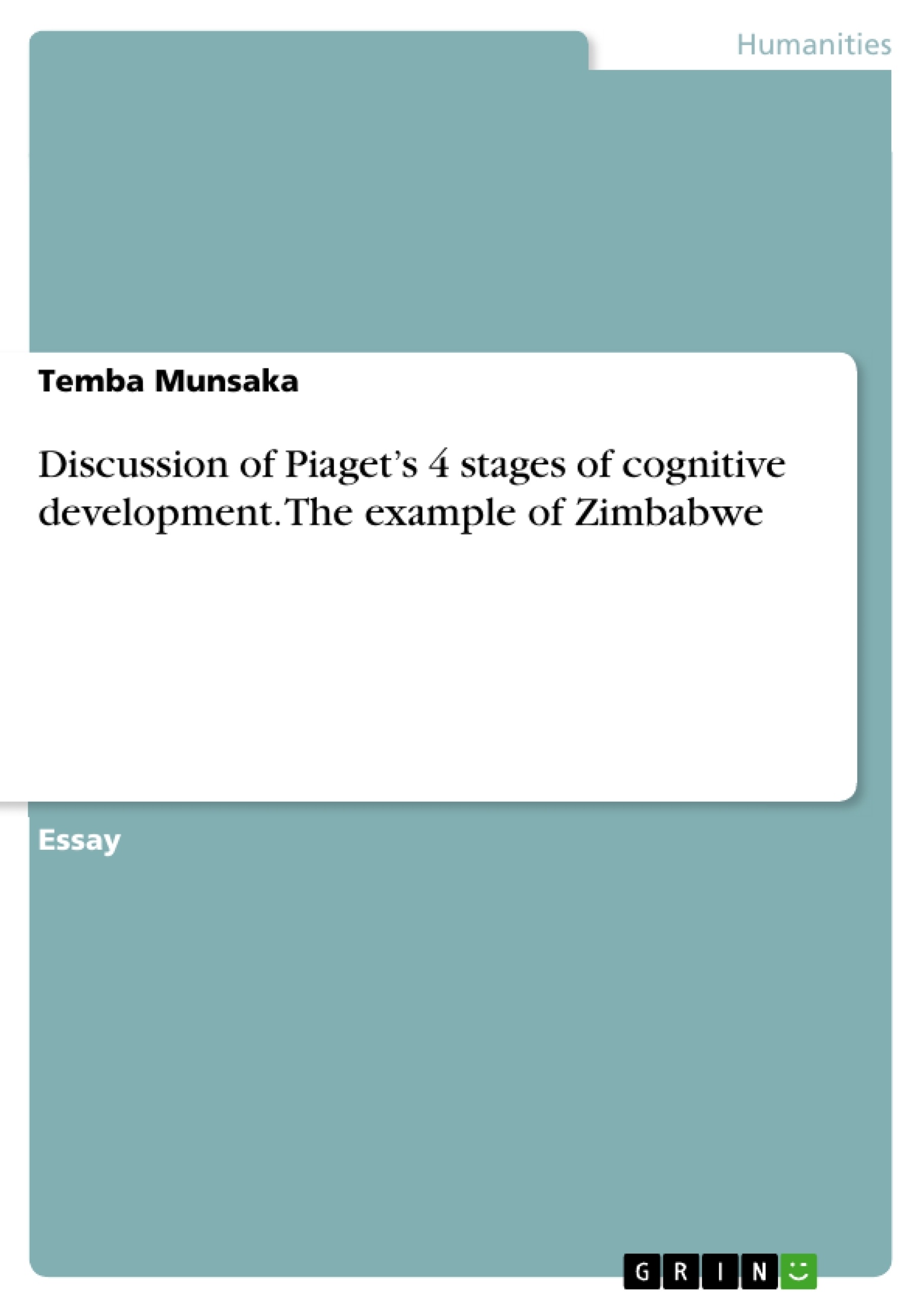Piaget's four stages of cognitive development apply to the children growing up in Zimbabwe to a greater. This is supported by the characteristics of child development in Zimbabwe, which are almost identical to those purported by Jean Piaget, for example, the sensory-motor stage and the concrete stage, only to mention a few.
However, these stages of development, even though vastly applicable to the children growing up in Zimbabwe, are not absolute due to the inevitable nature of shortcomings characterizing theories. This essay seeks to explore the whole of its applicability to children growing up in Zimbabwe in depth.
Table of Contents
- Piaget's Four Stages of Cognitive Development in Zimbabwe
- The Sensory-Motor Stage
- Language Development
- Object Permanence
- The Preoperational Stage
- Symbolic Representation
- Language Development
- Imagination and Problem-Solving
- The Concrete Operations Stage
- Object Properties
- Limited Logical Processing
- Conservation of Matter
- The Formal Stage
- Abstract Reasoning
- Logical Reasoning and Problem-Solving
- Conceptual Reasoning
- Shortcomings of Piaget's Theory
Objectives and Key Themes
This essay explores the applicability of Piaget's four stages of cognitive development to children growing up in Zimbabwe, examining the theory's strengths and limitations.
- Piaget's theory and its relation to child development in Zimbabwe.
- The relevance of Piaget's stages to various aspects of child development in Zimbabwean contexts.
- The limitations and shortcomings of Piaget's theory in explaining child development, particularly in Zimbabwe.
- The applicability of Piaget's stages to specific developmental milestones, including language acquisition, object permanence, and abstract reasoning.
- The potential for further research into the relationship between Piaget's theory and child development in Zimbabwe.
Chapter Summaries
The essay begins by introducing Piaget's four stages of cognitive development: the sensory-motor stage, the preoperational stage, the concrete operations stage, and the formal stage. Each stage is characterized by distinct cognitive abilities and developmental milestones. The essay then explores the relevance of these stages to the experiences of children growing up in Zimbabwe, providing numerous examples to illustrate the connection. For instance, the essay notes how children in the sensory-motor stage exhibit object permanence by crying when a toy is taken away but ceasing when it is returned. In the preoperational stage, children in Zimbabwe engage in symbolic play, using objects such as bricks to represent toy cars. The concrete operations stage is marked by the child's ability to understand object properties and begin to grasp conservation concepts. Finally, the formal stage witnesses the development of abstract reasoning and problem-solving abilities. While acknowledging the theory's broad applicability, the essay concludes by highlighting some shortcomings of Piaget's theory, such as its potential underestimation of children's abilities and the need for more research into individual differences in cognitive development.
Keywords
Piaget's Stages of Cognitive Development, Sensory-Motor Stage, Preoperational Stage, Concrete Operations Stage, Formal Stage, Child Development, Zimbabwe, Cognitive Abilities, Object Permanence, Symbolic Representation, Conservation, Abstract Reasoning, Shortcomings of Theory, Individual Differences.
- Quote paper
- Temba Munsaka (Author), 2023, Discussion of Piaget’s 4 stages of cognitive development. The example of Zimbabwe, Munich, GRIN Verlag, https://www.grin.com/document/1340841




